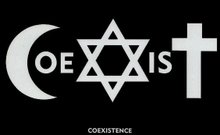What's the Deal with Head Coverings and Hair Length?
 "But to this day whenever Moses is read, a veil lies over their hearts, but whenever a person turns to the Lord, the veil is taken away. Now the Lord is the Spirit, and where the Spirit of the Lord is, there is liberty. But we all, with unveiled faces, beholding as in a mirror the glory of the Lord, are being transformed into the same image from glory to glory, just as from the Lord, the Spirit."--Paul, 2 Corinthians 3:15-19.
"But to this day whenever Moses is read, a veil lies over their hearts, but whenever a person turns to the Lord, the veil is taken away. Now the Lord is the Spirit, and where the Spirit of the Lord is, there is liberty. But we all, with unveiled faces, beholding as in a mirror the glory of the Lord, are being transformed into the same image from glory to glory, just as from the Lord, the Spirit."--Paul, 2 Corinthians 3:15-19."I pray you, be you mother, or sister, or virgin, or daughter...veil your head. All ages are imperilled in your person. Wear a rampart for your sex, which must neither allow your eyes egress, or ingress to other people. Arabia's female heathen shall be your judges, who cover not only the head, but the face also, so entirely that they are content to leave one eye free to enjoy half the light than to prostitute the entire face..."--Tertullian, 3rd century theologian.
So what is the deal with head coverings? From a "biblical perspective," should women be wearing them? Should men not? Should women only wear their hair long and men only have short hair? These are questions, we as believers, must ask ourselves while studying 1 Corinthians 11:4-16.
1 Corinthians 11:4-16 is ranked as one of the most difficult passages in the bible to understand, not because it's admonishment is "unfavorable," but because the meaning of certain words/phrases within the original text can not be adequately defined and the context is obscure. Anyone who claims to KNOW 100 percent how this verse should be understood is lying to you. It is one of the most disputed passages in the entire bible with a myriad of interpretive possibilities.
But I will try to present the positions that I think make the most sense and are most conducive with my understanding of scripture, as I am sure my "opponents" will argue for the interpretations that fit best with their understanding of the scriptures. Since this text is difficult, with a variety of valid interpretive options, it is important to note that these verses should not be used as a foundation for one's viewpoint on the role of women in the church, but only as an enhancement for either position, depending on how one becomes convinced of its meaning.
Most moderate-complementarians ironically view this passage as one of the few "cultural" admonishments recorded in scripture that is no longer relevant for today. However, because of the way English versions are translated, the text does not allow for such an understanding. The face value reading asserts that women should wear head coverings (and men should not). None of the reason given for this are cultural at all, nor do they have anything to do with "offending" others. Paul argues for women covering their heads/having long hair and men uncovering their heads/having short hair because (1) man is woman's "head," (which complementarians interpret as leader or authority figure), (2) man is the "image of God," while woman is "the glory of man" and was created for "the sake of man" (3) FOR the above reasons, the woman needs to wear a symbol of subjection on her head while in church, (4) because of the angels, (5) nature itself (not culture) teaches it is a shame for men to have long hair (inferring that nature also teaches woman should have long hair and/or wear head coverings); and (6) whatever Paul is trying to say here, he maintains that the Church (as a whole) has no other practice/custom.
None of Paul's arguments here, as we know them in our bibles, are cultural. Complementarians (depending where one falls on that broad spectrum) still believe the husband/man is the head, the woman/wife is to be in subjection to man/husband, that angels still exist, and so forth. So, if all of those factors are still true and still apply, why is it that moderate-complementarians disregard the head covering/long hair mandate for women and uncovered/short hair for men?
So, whether one is complementarian or egalitarian, one must determine what exactly Paul is arguing for and why? Then we must determine if Paul's argument is a time-bound or universal teaching, and how to faithfully live it out today. If it is universal and all-time binding, what does that mean for how believing men and women dress and wear their hair today? If it is time-bound, why is Paul arguing for this practice then? The next few posts will explore some of the options.














9 comments:
I'll stir the pot a bit. Here's what one well known pastor, who our old church heralded to the point of checking his notes against scripture to find out what the scripture REALLY means, that was their definition of discernment. Here's his take on verse 7:
Woman is described here then in Verse 7 as “the glory of man.” Man was made to manifest God’s authority. Woman was made to manifest man’s authority. The woman is a vice-regent, if you will, who rules in the place of man, as it were, or carries out man’s will as man rules in the place of God and carries out God’s will. Man, in a sense, shines with the direct light of God, while woman shines with the derived light from man. She comes along to help man. Man is the image and glory of God. Woman is also the image of God, but she is the glory of man.
I think it goes without saying that I disagree with this and frankly never did accept it (I was a bit of a rebel in that community, asked too many questions - imagine that!) but the truth is even though this sat wrong in my spirit, I never quite knew HOW to understand this passage, otherwise, either. And for the record, he really does mean man and woman - not just husband and wife.
So bring on some thought provoking stuff, Tia! :)
We black girls have enough hair drama without me having to weigh this!
See THIS post: http://terrysoapbox.blogspot.com/2008/07/this-just-struck-cord-with-me.html
No seriously, it's obvious you've given this a alot of thought and done a lot of research, which is one of the things I love about your posts.
Yeah, head coverings aren't exactly on my list of priorities either. :) It's more the dismissal or the ignoring of this passage by the very same people who so passionately embrace male headship that sort of intrigues me. I really want to hear from complementarians to understand their convictions about this verse beyond "it was cultural." Paul's arguments are not cultural at all, so I want to know what makes it okay to disregard head coverings for women and not other supposed "commands" like women not speaking or teaching and so forth.
these are a couple of well thought out and researched articles - as are many of your others! I can see why folks like to drop in and see what you're thinking about. I've linked to you from my headcoverings blog - you present much to think about.
Nice comments...te real wrinkle is that the view that woman was created to reflect the man ignores the totality of the creation accounts. Humans were made as both male and female. In a secondary story is told the creation of woman from the man - signally unity and completeness and not contention.
BTW - "the angels" might refer to individuals sent to find a potential spouse...they were sometimes called that and they would be looking for behaviors that would be in keeping with Jewish morals and values...
I have been headcovering for about 8 years now and I think it it important for maintaining modesty.
I wear it for the submission issue, and prayer, and in public.
Hello. And Bye.
Exousia epi which is sometimes translate as symbol of god. Mean authority over.Exousia epi is ones own authority.
Actual this is the only passge to take about head coverings. No where in the torah. Also does any one look at Corinthian art doing time? If you look all the women had they head bound up. So if PAul was talking about veil than there would be art of it. Also Paul do not use the word head covering. There words he uses just mean cover and uncover. Also Paul uses the word instead of in the Greek Anti is used for something to be equal to Paul told women their hair was a covering. Also men and women covered they heads. Paul know this. Men had long hair in Old testament including Paul. Paul himself calls this a custom.Not only that but there to command action. Adam and Eve were unveil.
1 Corinthians 11:3-16 is the only passage of scripture which could be understood to teach that women today should keep their heads covered. We should be wary of a doctrine which is based on only a single passage of God's Word, since the passage may be subject to another interpretation which does not support the doctrine
http://www.synagoguechm.com/articles/Kippas.pdf
Post a Comment